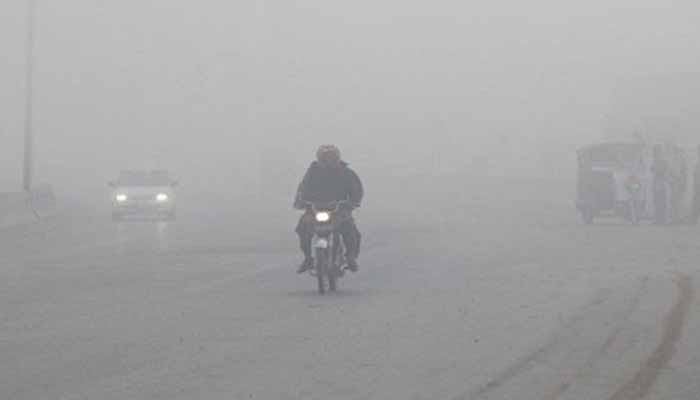Climate

The National Institute of Health (NIH) on Tuesday issued a health advisory warning citizens and authorities about the increased risk of smog-related illnesses as air pollution intensifies across several major cities.
According to NIH, smog may worsen respiratory diseases, while cold weather combined with toxic pollutants in the air can increase the risk of pneumonia. The advisory cautioned that children, elderly individuals and people with pre-existing medical conditions are especially vulnerable to air pollution.
Smog Risk Highest in Punjab’s Major Cities
The NIH highlighted Lahore, Multan, Gujranwala, Rawalpindi, and Islamabad as the cities most at risk. Lahore, in particular, continues to experience dangerously high levels of air pollution, prompting authorities to urge residents to limit outdoor activities.
The advisory called on health departments and medical experts across the country to take preventive steps, ensure readiness for increased respiratory cases, and raise public awareness. Citizens were advised to:
- Avoid staying outdoors for long periods
- Wear protective masks in smog-affected areas
- Keep children indoors during peak pollution hours
Why Does Smog Form?
Experts explain that the most common form of smog, photochemical smog, develops when nitrogen oxides (NOx) and volatile organic compounds (VOCs) react with sunlight.
- NOx is released mainly from vehicle emissions and industrial plants
- VOCs come from vehicles, fuels, paints, and certain chemicals
When exposed to sunlight, these pollutants form ground-level ozone and fine particles, creating thick smog that reduces visibility and affects breathing.
Another type, industrial smog, forms from the burning of coal and conventional fuels. With winter approaching, low wind speeds trap pollutants in the atmosphere, allowing smoke and fog to mix — a process that accelerates smog formation.
In simpler terms, smog mainly results from:
- Emissions from petrol and diesel vehicles
- Industrial smoke
- Crop-burning practices
Health Hazards of Smog
NIH cautioned that smog can have serious health impacts, including:
- Breathing difficulties
- Persistent coughing
- Chest pain
- Irritated or itchy eyes
- Worsening of asthma symptoms
- Increased risk of heart attack or stroke
Long-term exposure to smog can also cause lasting damage to the lungs due to toxic particles and ground-level ozone.
The advisory urged both the public and authorities to adopt preventive measures during peak smog season to reduce health risks and ensure timely medical response.




